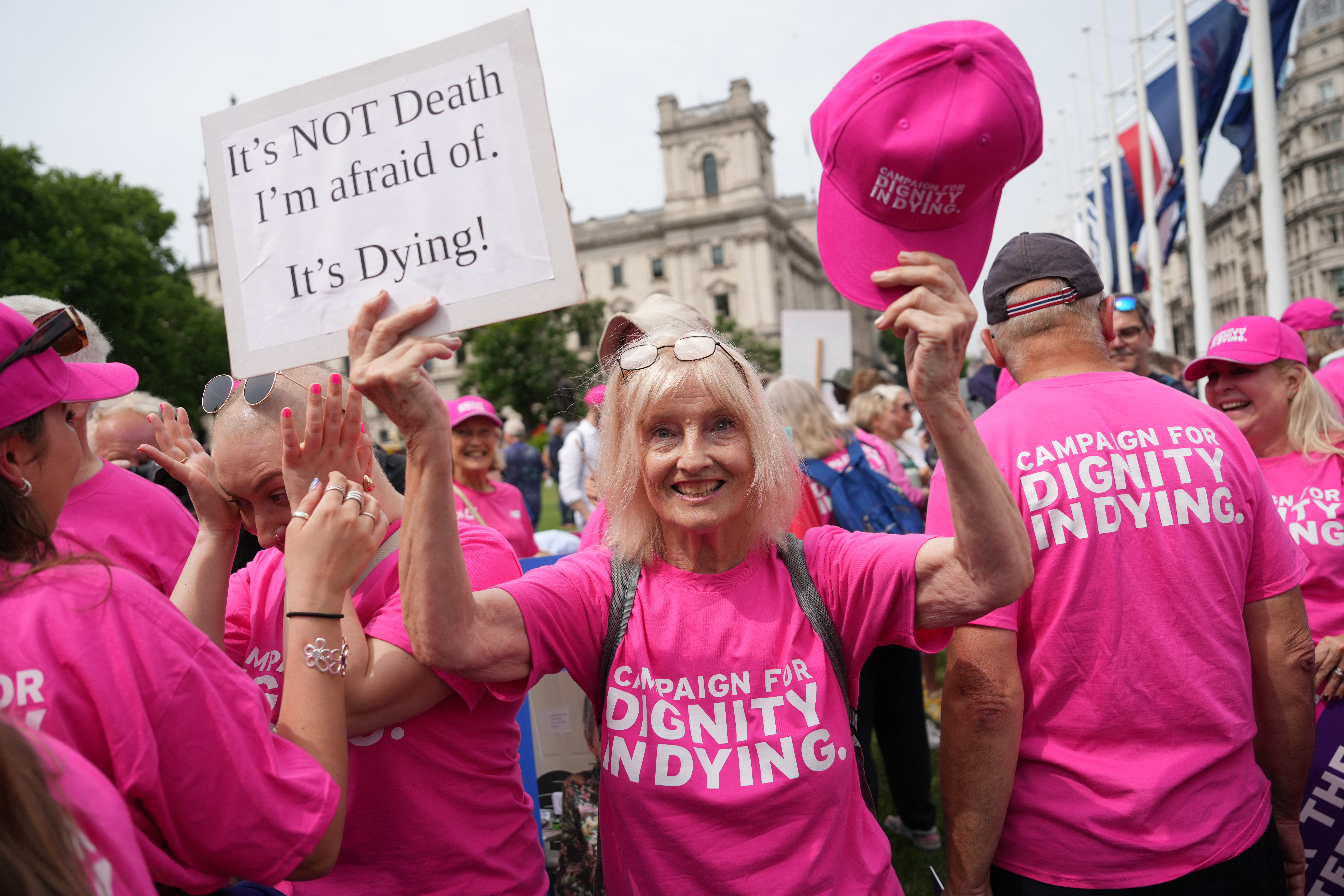
LONDON - The British House of Commons approved the assisted dying bill in a third reading vote Friday, marking a significant step toward legalizing assisted dying for terminally ill adults in England and Wales.
The bill will now move to the House of Lords for further debate and scrutiny. If passed, the law would mark one of the most profound shifts in British social policy since the partial legalization of abortion in 1967.
Lawmakers voted 314 to 291 in favor of the Terminally Ill Adults (End of Life) Bill. The margin was notably slimmer than the 55-vote majority recorded during the bill's second reading in November.
The bill, introduced by Labour MP Kim Leadbeater, proposes allowing mentally competent adults diagnosed with a terminal illness and expected to die within six months to legally choose to end their lives.
ALSO READ: British lawmakers to vote on landmark assisted dying law
Opening Friday's debate, Leadbeater said now was the time to "correct the profound injustices of the status quo and to offer a compassionate and safe choice to terminally ill people who want to make it," adding it was "not a choice between living and dying, but a choice for terminally ill people about how they die."

However, political opponents raised concerns over what they see as inadequate safeguards and the potential for abuse.
Former Foreign Secretary James Cleverly led the case against the bill, emphasizing that his objections centered on safety: "We were promised the gold standard, a judicially underpinned set of protections and safeguards," he said, but "the right safeguards (are) not in place."
Cleverly pointed out that the original proposal requiring High Court approval for each assisted death was dropped during revisions, a move he and others believe weakens protections.
ALSO READ: UK parliament votes to decriminalize abortion, repeal Victorian-era law
Several MPs who had initially supported the bill later withdrew their backing after amendments during the committee stage.
In an exclusive interview with Xinhua, Alistair Thompson, official spokesman for Care Not Killing -- an alliance of organizations opposed to the bill -- argued that the bill is heavily modeled on a similar US law, but features a broader and more concerning definition of terminal illness.
He warned that this could include individuals with conditions such as anorexia or insulin-dependent diabetes.
Despite those concerns, public opinion in Britain has generally favored allowing assisted dying under clearly defined circumstances. However, the issue remains politically and ethically sensitive.
ALSO READ: British lawmakers give initial support to assisted dying bill
A 2023 Ipsos survey, for example, found that around 65 percent of the public agreed doctors should be allowed to help a terminally ill patient with less than six months to live end their life, provided adequate safeguards are in place. Other surveys show even higher levels of support -- often exceeding 75 percent -- when the issue is framed around incurable suffering and strict eligibility criteria.
Advocacy organizations such as Dignity in Dying, the leading campaign group for assisted dying reform, have highlighted personal stories of Britons who either had to travel to Switzerland or resorted to traumatic methods of suicide due to the legal ban in Britain.
On the opposing side, disability rights groups and socially conservative organizations continue to raise alarm.
Groups like Not Dead Yet UK -- a network of disabled activists -- have been particularly active in campaigning against the bill. They argue that what appears to be a neutral "choice" to die can, in reality, be shaped by social pressures such as inadequate care, loneliness, or the fear of becoming a burden.
READ MORE: UK to consider 'historic' bill to legalize assisted dying
They warn that disabled and terminally ill people may internalize the belief that they are a strain on family or public services, especially in the context of austerity and cuts to healthcare.
Earlier this week, Not Dead Yet UK released polling showing that two-thirds of disabled people believe that if disability benefits and social care are cut, some individuals may be more likely to seek assisted suicide rather than struggle with poverty or a lack of support.
"That's coercion, not choice," said Phil Friend, convener of Not Dead Yet UK, adding that Parliament "cannot pass this legislation while simultaneously dismantling some of the support systems that disabled people rely on."
Nancy Preston, professor of supportive and palliative care and co-director of the International Observatory on End-of-Life Care at Lancaster University, said, "I think most people will welcome the outcome, but there is a long way to go. There is up to four years to work out what this will mean in practice."
However, she acknowledged the scale of the change: "This is a fundamental change to the options people have at the end of life."


